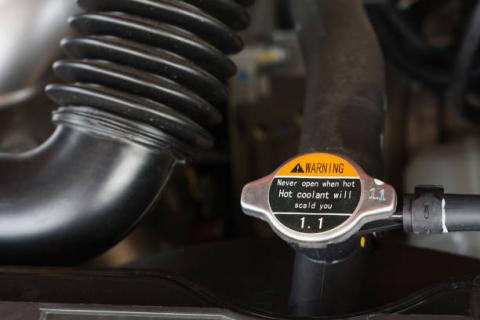Posted on 12/12/2018

An inspection of your vehicle during fall months will go a long way toward ensuring safety and dependability when temperatures drop, and severe winter weather strikes. A routine maintenance program also makes financial sense, extending useful vehicle life and helping avoid costly repairs down the road. When you schedule with Oceanworks Berkeley, we will examine these top 10 items in your vehicle: Check all fluids, including engine oil, power steering, brake, and transmission as well as windshield washer solvent and antifreeze/coolant. Check the hoses and belts to make sure they are not cracked, brittle, frayed, loose or showing signs of excessive wear. Check the battery and replace if necessary. Make sure the connection is clean, tight and corrosion-free. Check the brake system annually and have the brake linings, rotors and drums inspected at each oil change. Inspect the exhaust system for leaks, damage and broken supports or hangers if there is an unusual noise. Exhaust leaks c ... read more
Posted on 11/20/2018

School is back in session, that means carpooling is a big deal, follow this check-list for an easy school year! Check lights and wipers for visibility. With shorter days and inclement weather ahead, make sure lights and wipers function properly so that you can see and be seen. Check the exterior and interior lights and replace any that are dimming, rapidly blinking or not functioning. Check wiper blades for signs of wear and replace if necessary. Check tires for under inflation or excessive wear. Check tire pressure and refill underinflated tires, including the spare, and look for uneven wear and check tread depth. An easy way to do the latter is by placing a penny head-down in the tread groove. If the tread does not cover Lincoln's head, it's time to replace your tires. Consider a back-up detection device. Consider having a back-up detection device installed that provides rearview video or warning sounds when moving in reverse. While drivers should not rely solely on these ... read more
Posted on 10/20/2018

With the hot summer temperatures on the rise, knowing the symptoms of a sick cooling system are critical to your car's survival, since cooling system failure is a leading cause of vehicle breakdowns. The most noticeable symptoms include overheating, leaks, a sweet smell of antifreeze and repeatedly needing to add coolant, according to Oceanworks Berkeley. The primary job of the engine's cooling system is to remove the heat that is generated during the combustion process. The coolant temperature can be well over 200 degrees and that heat has to go somewhere, otherwise engine components are going to start failing. The key parts of the cooling system remove the heat from the engine and automatic transmission and dispel it to the air outside. The water pump circulates coolant through the engine. The coolant absorbs heat and returns it to the radiator where heat is dissipated. The thermostat regulates the coolant temperature to keep it consistent for efficient engine operation. A ... read more